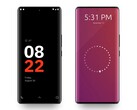Installing Linux on a smartphone is a fairly niche pastime, even with the rise of smartphones designed to reduce screen time and move away from the big corporations accused of using their devices to track our every move.
Nevertheless, there are plenty of options out there, from the likes of Volla or Fairphone and Ubuntu Touch can be installed on a significant number of older devices.
We covered the Liberux NEXX back in January when the product was first announced, and Liberux has recently launched an Indiegogo campaign to raise funds for the phones' development.
The Liberux vision is a commendable one, offering freedom from tracking and planned obsolescence with hardware and software that is owned by the user. Removable batteries and 5 years of software support aim to keep their devices out of landfill. Android support is also promised through a Waydroid implementation, and a full-fledged operating system will turn the device into an extremely portable PC with the addition of a dock.
The specification is pretty good as well, with the NEXX touting 32 GB of LPDDR4X RAM, a 256 GB eMMC and a Rockchip RK3588S 8 core processor. It even has hardware switches for controlling all of your devices radios and USB ports.
Even if the audience for this type of niche product wasn't miniscule already, the biggest problem is the price. Liberux are asking $1480 to secure a single device with a delivery date some time in July 2026. That's with a 21% discount from the $1878 predicted retail price. There may be development boards and a proof of concept, but there isn't a functioning prototype, and the campaign is listed by Indiegogo as still being at the concept stage.
That's a lot of money for an open source phone by any stretch of the imagination, especially when you can buy a first generation Pixel Fold from Amazon and install LineageOS on it for more than half the price. It's also quite a gamble, given that this product may not even make it to your doorstep.
The Liberux NEXX presents an honourable and worthy vision, free from big corporations, where the user is in charge of their hardware and software. However, the price of that freedom might prevent them from ever seeing their dream come to fruition.










